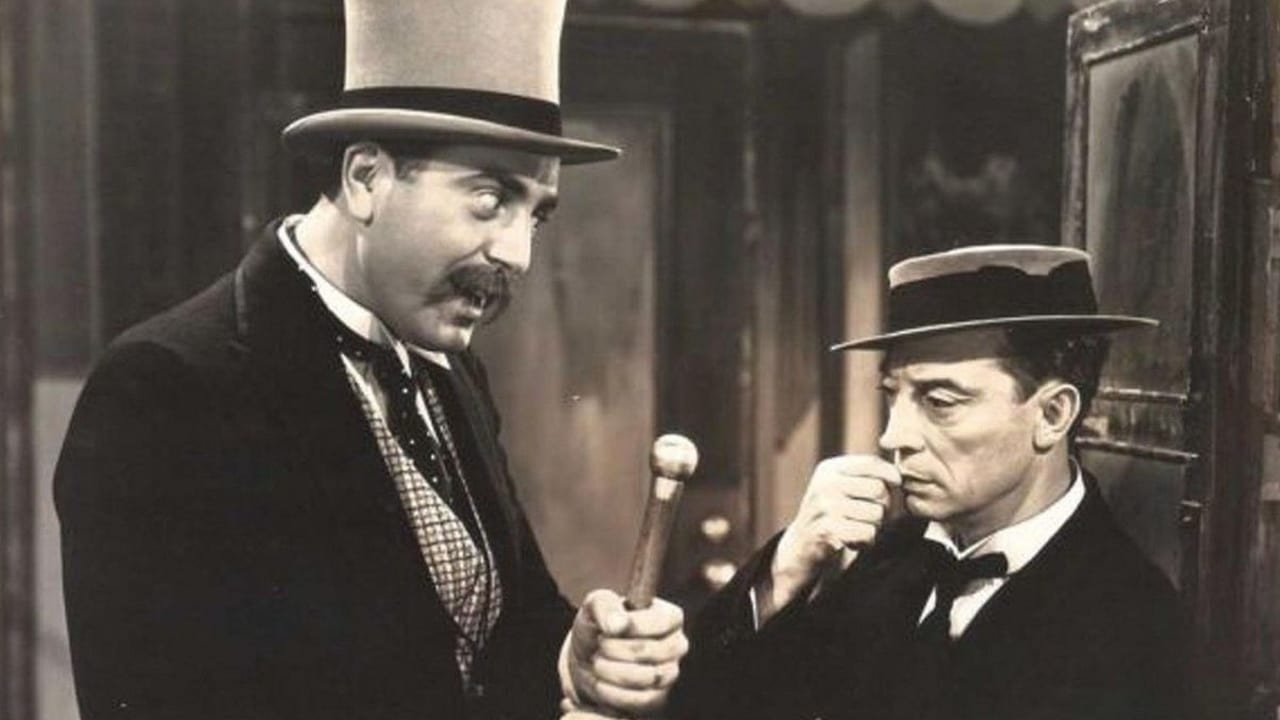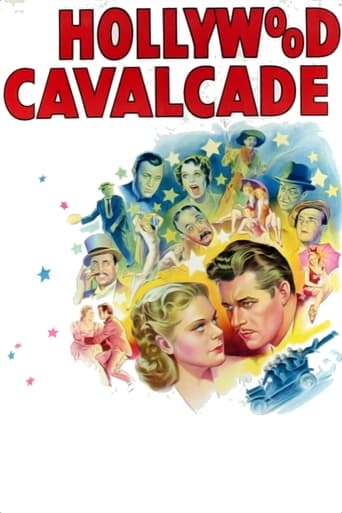



Wonderful character development!
Best movie of this year hands down!
Unshakable, witty and deeply felt, the film will be paying emotional dividends for a long, long time.
View MoreStory: It's very simple but honestly that is fine.
'The more Keystone comedies I make, the more convinced I become that comedy is an art, and a high one at that. If those who are inclined to scoff at me will try their hand at directing just one of those comedies they designate as anything but art, I am pretty certain they will concede me my point.' Mack SennettAn overlooked homage to silent cinema, this film charts the rise and fall of a self-made director whose ambition blinds him to the emotional attachment he has to the actress whose star he plots from theatrical obscurity to leading lady of the silver screen. Often regarded as a fictionalised account of the life of the 'King of Comedy', this long-term pet project of Darryl Zanuck serves as more of a composite portrait of several silent screen moguls, including the aforementioned founder of Twentieth Century Fox himself. There can be no doubt that Don Ameche's protagonist, Michael Connors, shares much of Mack Sennett's creative drive in creating his own movie company, and introducing audiences to both slapstick comedy and bathing beauties. Moreover, aside from appearing briefly on screen as himself, Sennett casts his influence over the production through connections to both cast and crew. Firstly, there are the swansong appearances by several members of his stable of silent comedy stars, such as Ben Turpin and Chester Conklin, together with the band of Keystone Cops. In addition, the director of the black and white chase sequences, Malcolm St Clair, had learned his trade under the auspices of Sennett, as had former screenwriter, Zanuck. Yet, although the screenplay is often regarded as a fictionalised account of the stormy relationship between Sennett and Mabel Normand, the reality is that Normand was already an established movie actress when they met, and her career would be mired in far greater scandal and end more tragically. The other notable influence is that of Buster Keaton, for whom this production served as a brief return to the limelight, having had his career blighted by alcoholism and having been reduced to employment as a gag writer for the Marx Brothers. Keaton's rehabilitation is at the hands of principal director, Irving Cummings, a former actor whose own big break had come in Keaton's debut feature, 'The Saphead'. In the intervening years Cummings had established himself as a director of flashy musicals starring the likes of Alice Faye, and here provided he latter, one of the ten biggest box-office draws in Hollywood at the time, with her first foray in a non-musical role. Faye not only convinces as a melodramatic actress, but also as a worthy successor to the likes of Normand in silent comedy. Despite the fact that another of his performances from that same year captured public attention, her erstwhile co-star, Don Ameche, captivates every scene in which he appears as the driven and innovative young director. Serving as Twentieth Century Fox's answer to Selznick's Oscar- garlanded 'A Star is Born' from the previous year, this production is rare in crediting another studio with its contribution to cinema. However, this apparent generosity of spirit somewhat masks the underlying self- aggrandisement of the film's producer. Firstly, as illustration of Connors' loss of instinct as to what equates box office gold, he rejects Rin Tin Tin. The rise of this canine was one of Warner Brothers' major successes, and Zanuck himself had risen to prominence as head of production within this rival studio for overseeing this four-legged star's trajectory. Moreover, in this same role Zanuck played an influential part in fashioning Warner Brothers' output including 'The Jazz Singer' which is heralded by Ameche's character as signalling the end of the silent era. One final ironic footnote revolving around this production's story-line concerns Zanuck's relationship with his movie's female lead. As Ameche noted Zanuck like many others in the studio pursued her, and Faye would ultimately turn the tables on his disloyalty like no other female star has done before or since.
View More"Hollywood Cavalcade" is a mildly entertaining 1939 film starring two staples of the 20th Century Fox roster, Don Ameche and Alice Faye, and containing a couple of in jokes.The film concerns a Max Sennett type, Michael Connors (Ameche) who brings an actress to Hollywood, Molly Adair (Faye) and makes her a big silent comedienne, eventually moving her into more dramatic roles. He becomes extremely successful with her as his star. Obsessed with his work, he's absolutely shocked when she and her leading man (Alan Curtis) run off and get married. He's so shocked, he dumps her. She and her husband go off and continue to be more and more popular while Connors' studio starts losing money at an alarming rate. Before you know it, he's through. Molly wants to help and asks that Connors direct her next film.There's lots of Keystone Kop type footage, which is quite funny, and some fantastic slapstick by Buster Keaton, who is wonderful. The film also has a scene from "The Jazz Singer" when the talkies take over. The in-joke, of course, has to do with Rin Tin-Tin, for whom Zanuck used to write. In one scene, Rinny's trainer brings him in as a potential contract player for Connors' studio. Connors throws both of them out of his office. A few scenes later, Rin-Tin-Tin is shown to be #1 box office. The role of the famous German shepherd in this film is played by Rin Tin-Tin, Jr., daddy having passed away in Jean Harlow's arms in 1932, one month shy of his 14th birthday. Fortune smiled on him even at the end.Alice Faye is very pretty and does a fine job, as does Ameche, who turns in an energetic performance. J. Edward Bromberg and Stuart Erwin provide very good support.Unfortunately, this film isn't quite sure what it is - history, comedy, romance, or drama. However, "Hollywood Cavalcade" is still quite watchable.
View MoreIn the earliest years of silent cinema, former prop boy Mike (Don Ameche) "discovers" a charming Broadway understudy, Molly (Alice Faye), and impulsively hires her to a personal contract to star in pictures. With Mike as director, Molly is set to appear in a film with Buster Keaton as her boyfriend -- but things get out of hand, the first day on the set.By accident, Buster flings a custard pie into Molly's lovely face, thus throwing off the rhythm of their primly choreographed love scene. Soon Molly, Buster, and the "villain" of their scene (George Givot) are covered in custard, and the laughing and applauding onlookers convince Mike he's discovered a new screen genre. He milks it for all it's worth, launching a series of slapstick comedies -- with pies, bathing beauties, and Keystone-style Kops -- all featuring Molly, who becomes a big star.If "Hollywood Cavalcade" had continued in this same vein, it would probably have become a classic. Instead, about halfway through, Mike makes the decision to turn Molly into a dramatic actress, starring in serious photoplays and leaving her slapstick days behind.The film's second half turns maudlin when Molly, whose love for Mike seems unrequited, marries her new costar Nicky (Alan Curtis). Having lost his biggest star, Mike slides into despair, his films regularly losing money. Then Nicky is killed in a traffic accident and Molly teams up with Mike again. They make a hit picture, and discover that they've loved each other all along."Hollywood Cavalcade" marked two firsts for Alice Faye: her first Technicolor film, and also the first in which she sings not a single note. But her performance was generally lauded by the film critics.
View MoreThis is a movie about the old silent movie days in Hollywood and I think one of the best movies about the subject. Don Ameche and Alice Faye are terrific. But in my opinion the real treat is watching Buster Keaton perform his unforgettable slapstick for the first scene in the movie studio, and the recreation of an old Mack Sennett style comedy. (Which was supervised by Mack himself.) This is a great movie for silent film buffs... and anyone for that matter. But unfortunately you can't get it on video, but it's on T.V every once in a while so try and catch it. Chio!
View More